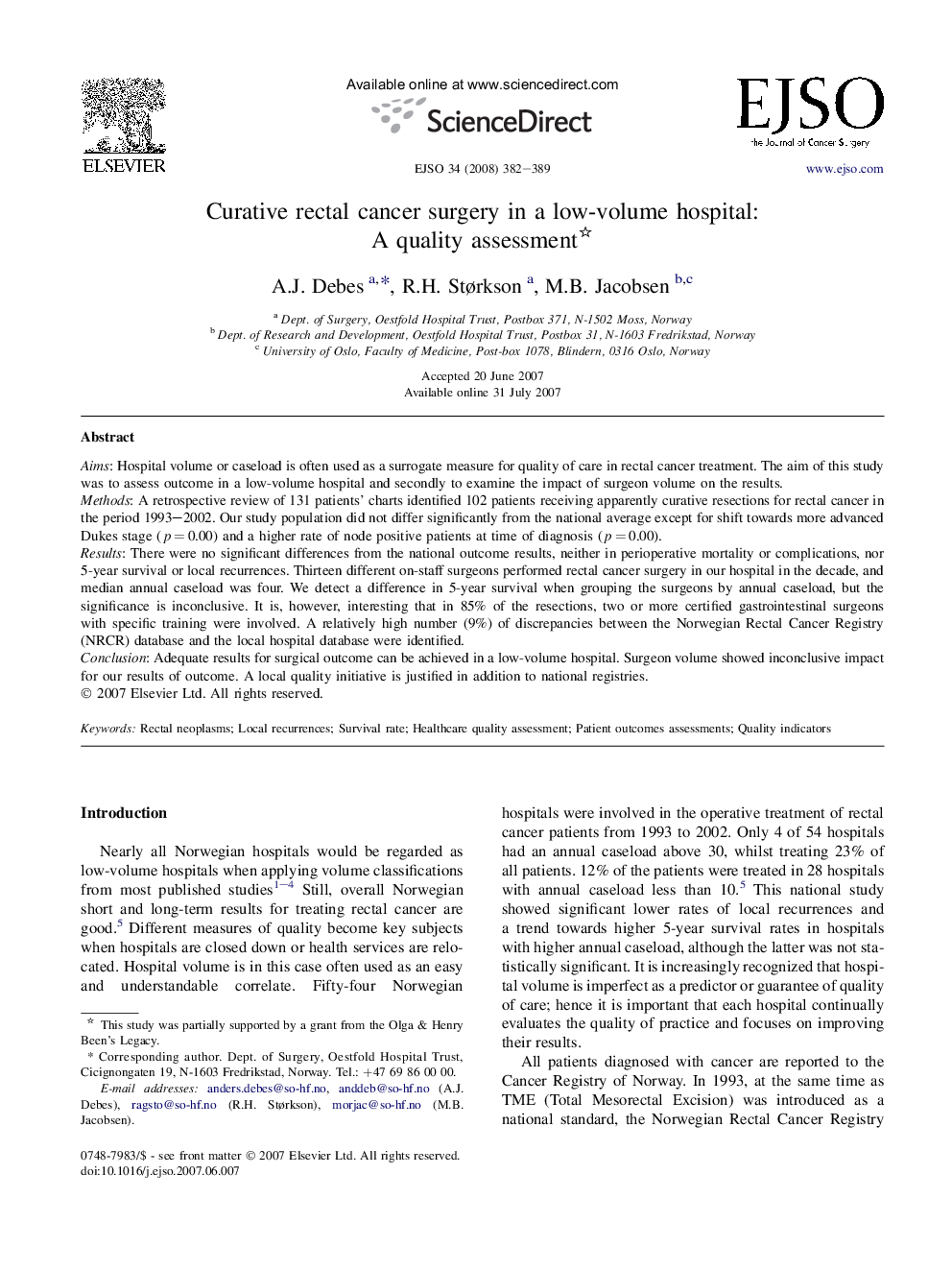| Article ID | Journal | Published Year | Pages | File Type |
|---|---|---|---|---|
| 3987276 | European Journal of Surgical Oncology (EJSO) | 2008 | 8 Pages |
AimsHospital volume or caseload is often used as a surrogate measure for quality of care in rectal cancer treatment. The aim of this study was to assess outcome in a low-volume hospital and secondly to examine the impact of surgeon volume on the results.MethodsA retrospective review of 131 patients' charts identified 102 patients receiving apparently curative resections for rectal cancer in the period 1993–2002. Our study population did not differ significantly from the national average except for shift towards more advanced Dukes stage (p = 0.00) and a higher rate of node positive patients at time of diagnosis (p = 0.00).ResultsThere were no significant differences from the national outcome results, neither in perioperative mortality or complications, nor 5-year survival or local recurrences. Thirteen different on-staff surgeons performed rectal cancer surgery in our hospital in the decade, and median annual caseload was four. We detect a difference in 5-year survival when grouping the surgeons by annual caseload, but the significance is inconclusive. It is, however, interesting that in 85% of the resections, two or more certified gastrointestinal surgeons with specific training were involved. A relatively high number (9%) of discrepancies between the Norwegian Rectal Cancer Registry (NRCR) database and the local hospital database were identified.ConclusionAdequate results for surgical outcome can be achieved in a low-volume hospital. Surgeon volume showed inconclusive impact for our results of outcome. A local quality initiative is justified in addition to national registries.
